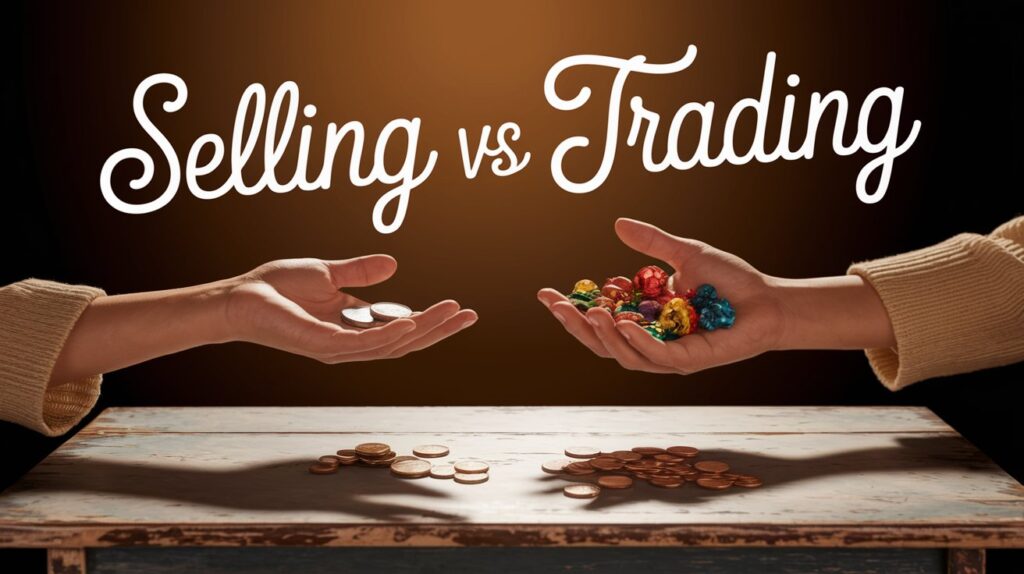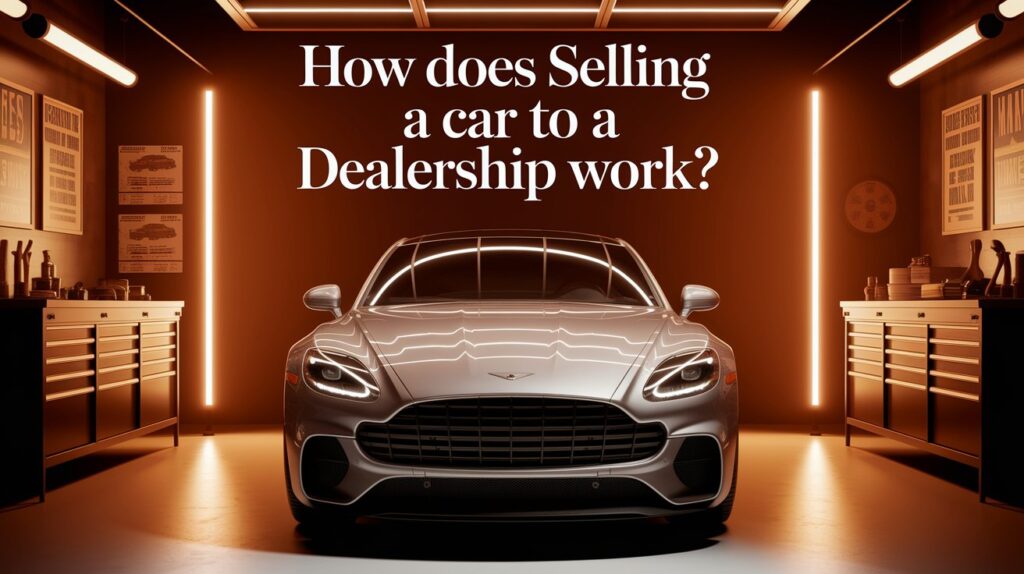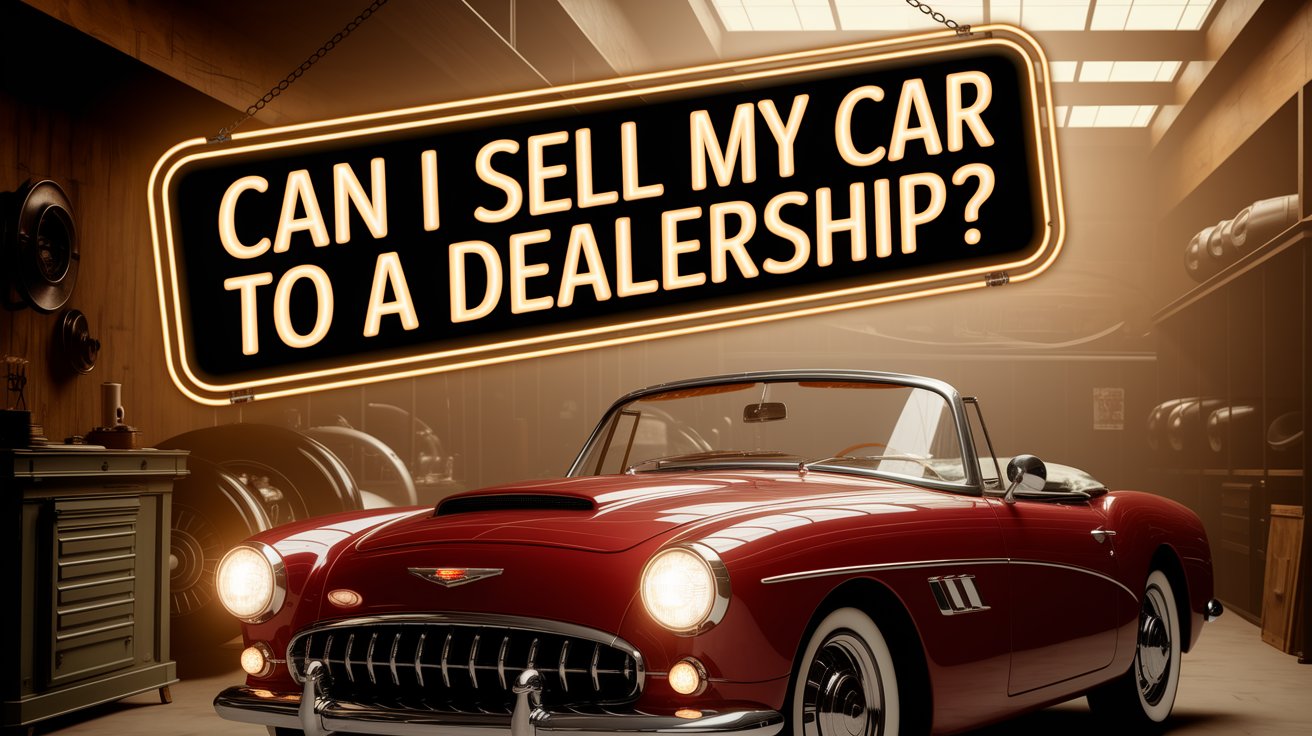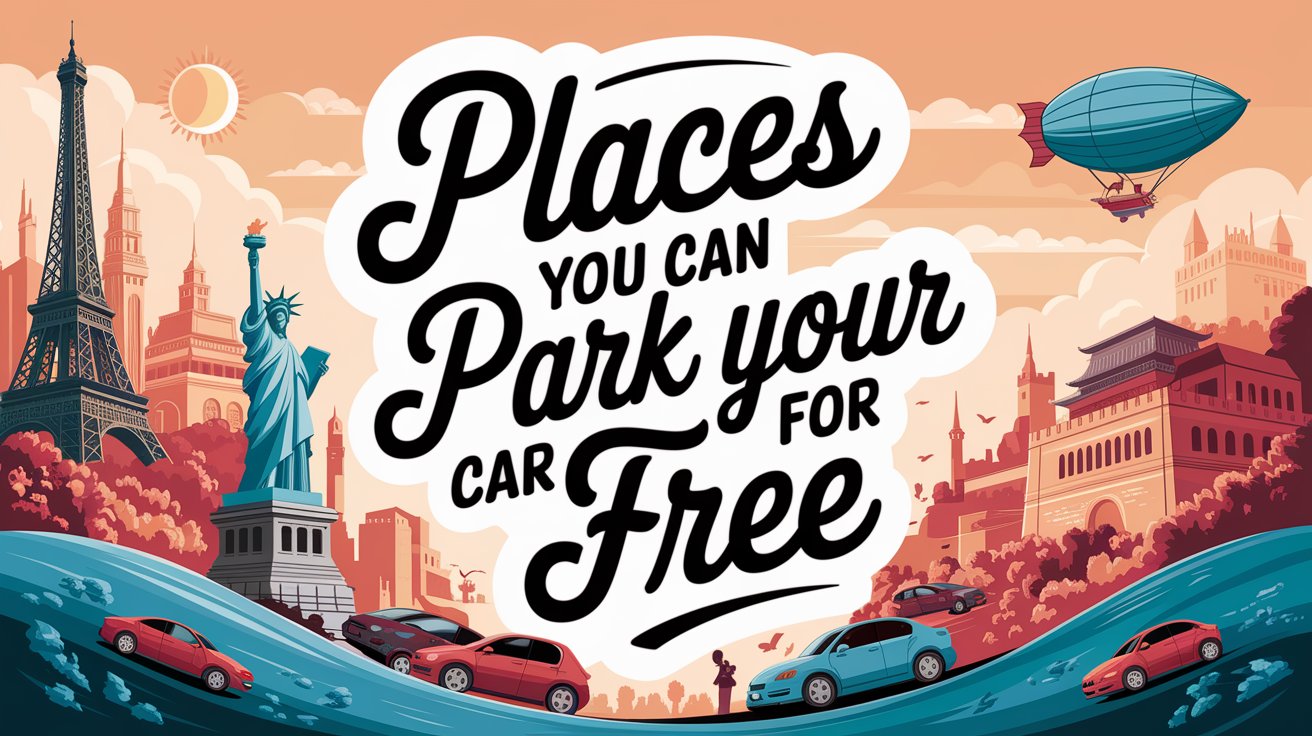Selling your car might seem like a hassle, especially if you’ve never done it before. But here’s some good news—you can sell your car to a dealership, and it’s often much easier than selling it privately. Whether you’re upgrading, downsizing, or just need quick cash, dealers are usually open to buying used cars directly. This option can be fast and stress-free, especially if you understand how it works. From the dealer appraisal to the vehicle documentation, everything follows a process. Dealerships handle most of the paperwork, and you might even get a cash offer from the dealership the same day. Let’s explore how the dealership car selling process works.
Selling vs Trading In: What’s the Difference?

People often confuse selling a car with trading it in. The key difference is that when you trade in, you apply your car’s trade-in value toward buying another used car or new vehicle. When you sell, you walk away with a check. You don’t have to buy another car to sell yours to a dealer.
If your goal is to get quick cash and you aren’t buying a replacement car, then private party sale vs dealer sale becomes important. Private sales take longer, have more paperwork, and may not be as secure. On the other hand, the dealership process is safe, professional, and efficient. If your car condition is good and you have the right documents, it’s easier to sell than you think.
How Does Selling a Car to a Dealership Work?

The dealership car selling process usually starts with a visit or online appraisal. A used-car manager checks the car’s exterior, interior, and vehicle history. They may test drive it and check for signs of damage or repairs. This is known as the vehicle appraisal process.
Then they give you a dealer offer, which is often based on used car auction prices, local used car market trends, and their own inventory shortage. If they need your model, you may get a better price. If your car is in high supply, your offer might be lower. You can accept their offer, negotiate, or leave and try another dealer.
Preparing Your Car for Sale
Before visiting a dealer, it’s important to clean your used car inside and out. Remove all personal items. Fix small issues like lights or windshield wipers. Having a recent oil change and a detailed cleaning can help. Bring service records to prove good maintenance. This builds confidence in the car condition.
Also, make sure you have all vehicle documentation ready. This includes the vehicle title, registration, loan paperwork (if it’s a financed vehicle), and your ID. These documents speed up the car resale process. If you’re missing any paperwork, call your DMV or lender beforehand.
Getting the Best Deal from a Dealer
To get the highest dealer cash offer, always check your car resale value before going to a dealer. Use car value estimate tools like Kelley Blue Book, Edmunds, or NADA Guides. These sites give fair value based on your car’s make, model, mileage, and condition.
Visit multiple dealerships and ask for quotes. Getting multiple car offers helps in the negotiation process. One dealer may value your car more due to local demand. Some certified dealers may offer more if your vehicle matches what they need. Timing also matters. Dealers pay more during high demand seasons like spring and early summer.
| Car Value Estimator | Website | Free to Use |
|---|---|---|
| Kelley Blue Book | kbb.com | Yes |
| Edmunds | edmunds.com | Yes |
| NADA Guides | nada.com | Yes |
Selling a Financed Car: Is It Possible?
Yes, selling a financed vehicle to a dealership is possible. You don’t need to pay off your car loan first. The dealer will contact your lender and handle the car loan payoff for you. However, it’s important to know how much you owe on the loan.
If you owe more than the car’s value, this is called negative equity. In that case, you may have to pay the difference out of pocket. If you owe less, the dealer pays the balance and gives you the rest. Either way, the dealership will help you close the deal properly.
Options for Selling a Car with a Loan
If you’re selling a financed vehicle, you have options. You can sell to a certified dealer, use online retailers like CarMax or Carvana, or go for a private party sale vs dealer sale. Selling privately may get you a better price but takes more effort.
Certified dealers and online platforms offer convenience. They manage paperwork and the vehicle title transfer. If your car loan is with a national bank, the process is usually faster. Some local credit unions may take more time. Still, most deals close within a few business days.
Pros and Cons of Selling to a Dealership
Selling your car to a dealer has many benefits. You save time, avoid stranger meetups, and handle less paperwork. It’s safer and faster than selling privately. You don’t need to post ads or take test drive requests. Plus, certified dealer programs often include free inspections and quotes.
On the downside, you might get a lower price than selling privately. The dealer appraisal considers reconditioning costs, profit margins, and auction alternatives. Some people prefer to do the extra work for a higher return. But if speed and simplicity matter, dealerships are a smart choice.
Finalizing the Sale with a Dealership
To close the deal, make sure you have all vehicle documentation ready. Sign the bill of sale, the vehicle title, and any car loan payoff paperwork. The used-car manager will help walk you through this. Once the documents are complete, they usually give you a check or direct deposit.
In some cases, the payment is delayed if there’s a car loan involved. The dealership pays the loan, waits for the vehicle title, and then pays you the balance. This is common and part of the car resale process. Most dealers complete the transaction in under a week.
Also Read: Top Places You Can Park Your Car for Free in the USA
Conclusion: Is Selling to a Dealership Right for You?
So, should you sell your car to a dealership? It depends on your needs. If you want a fast, safe, and easy way to sell your used car, it’s a great option. If you want the highest price and don’t mind more work, a private sale could be better.
The key is knowing your car’s value, checking auction price comparison sites, and preparing your vehicle documentation. Use tools, visit certified dealers, and get multiple offers. That way, you can make the smartest choice and get a deal you’re happy with.
People Alos Ask
Can I sell my financed car to a dealership?
Yes, you can sell your financed car to a dealership; they’ll pay off the loan balance and offer you the difference.
Who gives you the most money for your car?
Typically, private buyers pay more than dealerships, but dealerships offer quicker, hassle-free transactions.
Can I give my financed car back to the dealership?
Yes, but it depends on your loan terms; the dealer will handle the car loan payoff if they agree to buy it.
Where is the best place to sell my car?
Selling privately often yields the most, but dealerships are best for fast, secure sales with less paperwork.
Will the dealership buy my car without trade?
Yes, dealerships buy cars outright even if you’re not trading it in for another vehicle.


